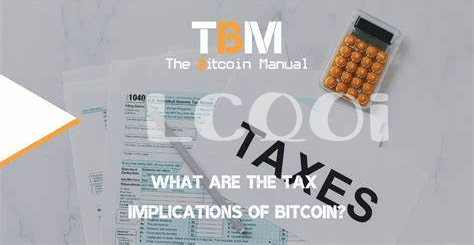Overview of Cryptocurrency Tax Regulations in Malaysia 🇲🇾

Cryptocurrency tax regulations in Malaysia have been a topic of increasing importance as the popularity of digital currencies grows. The Malaysian government has taken steps to provide clarity on how cryptocurrencies are taxed, aiming to create a fair and transparent system for both businesses and individuals involved in crypto transactions. Understanding these regulations is essential for anyone engaging in cryptocurrency activities within the country to ensure compliance with the law and avoid any potential penalties or legal issues.
Understanding Taxable Events for Cryptocurrency Transactions 💸
When engaging in cryptocurrency transactions, it is crucial to have a clear grasp of the various events that could trigger tax obligations 💸. Understanding the specific instances that may be considered taxable events, such as selling cryptocurrencies for fiat currency, exchanging one type of cryptocurrency for another, or using crypto to purchase goods or services, is essential for accurate tax reporting and compliance. By being aware of these taxable events, cryptocurrency holders can navigate the tax implications effectively and ensure they fulfill their reporting obligations without any issues.
Reporting Obligations and Compliance Requirements 📊

In Malaysia, cryptocurrency users have specific reporting obligations and compliance requirements that must be adhered to. These regulations are in place to ensure transparency and accountability within the crypto space. Individuals and businesses engaging in cryptocurrency transactions are required to keep detailed records of their activities and report them accurately to the relevant authorities. Failure to comply with these reporting obligations may result in penalties or legal consequences. It is important for cryptocurrency enthusiasts to stay informed about the reporting requirements and ensure full compliance with Malaysian tax laws to avoid any potential issues in the future.
Tax Implications for Mining and Staking Activities ⛏️

When it comes to mining and staking cryptocurrencies in Malaysia, understanding the tax implications is crucial. These activities can have varying tax treatments, depending on how they are classified by the Malaysian tax authorities. Mining rewards, for instance, may be treated as business income subject to corporate tax, while staking rewards could be seen as investment income liable to individual income tax. It’s essential for cryptocurrency enthusiasts engaging in these activities to stay informed about the tax rules to ensure compliance and avoid any potential penalties. To learn more about tax deductions available for bitcoin trading expenses in Lesotho, visit tax implications of bitcoin trading in Lesotho.
Capital Gains Tax on Cryptocurrency Investments 💰
Cryptocurrency investments in Malaysia may be subject to capital gains tax, depending on the holding period. Short-term gains from trading activities are typically taxed at a higher rate than long-term gains. Understanding the tax implications of selling cryptocurrencies for a profit is key for investors to accurately report their capital gains. It is essential to keep detailed records of transactions to calculate the gains or losses correctly and fulfill tax obligations. Staying informed about any updates or changes in regulations regarding capital gains tax on cryptocurrency investments is crucial for staying compliant and making informed decisions in the evolving landscape of crypto taxation in Malaysia.
Potential Changes and Future Outlook for Crypto Taxation 🔮

In the dynamic landscape of cryptocurrency taxation, Malaysia is poised to potentially introduce new policies and regulations that could shape the future of how digital assets are taxed. Amidst global discussions on standardizing crypto tax laws, Malaysia may adapt its approach to keep pace with evolving technologies and international norms. This forward-looking perspective indicates a willingness to embrace innovation while ensuring fiscal responsibility and regulatory clarity. As stakeholders navigate this shifting terrain, staying informed and proactive in compliance will be essential to address any upcoming changes effectively.
To delve deeper into the tax implications of bitcoin trading in Kenya, including potential parallels and disparities with the Malawian context, one can explore the tax implications of bitcoin trading in Malawi. This comparative analysis can offer valuable insights into the diverse regulatory frameworks shaping cryptocurrency transactions across different jurisdictions.
